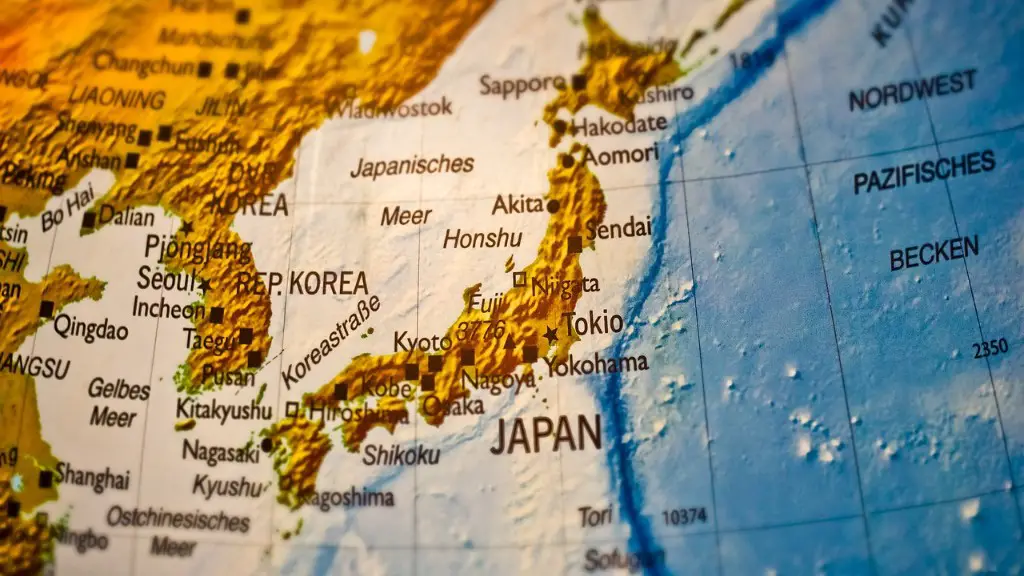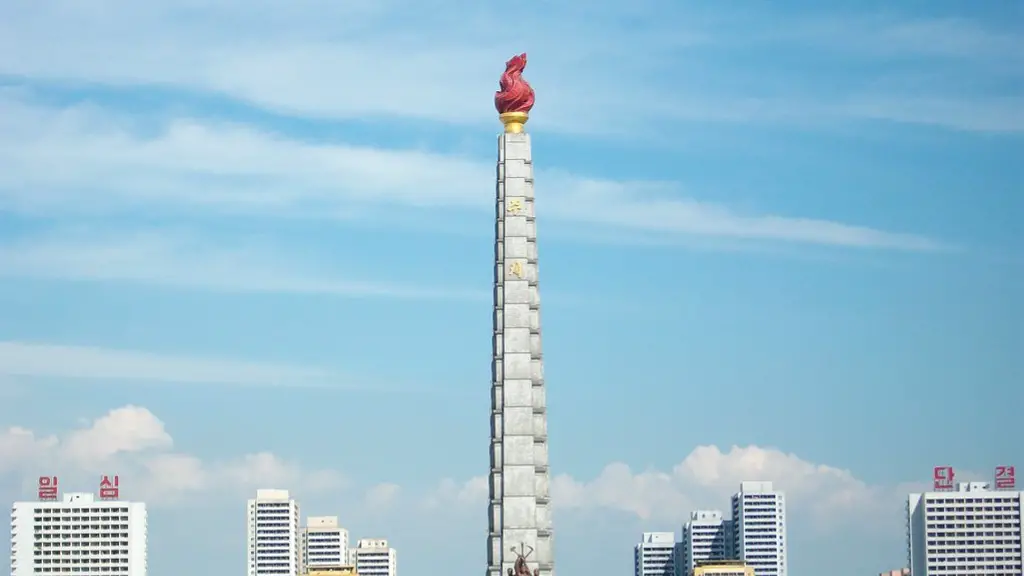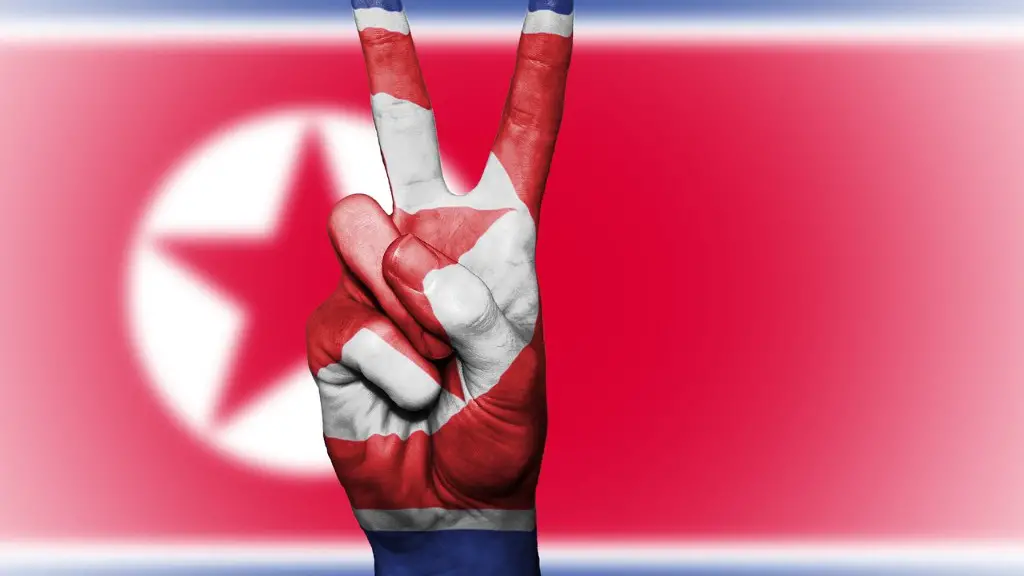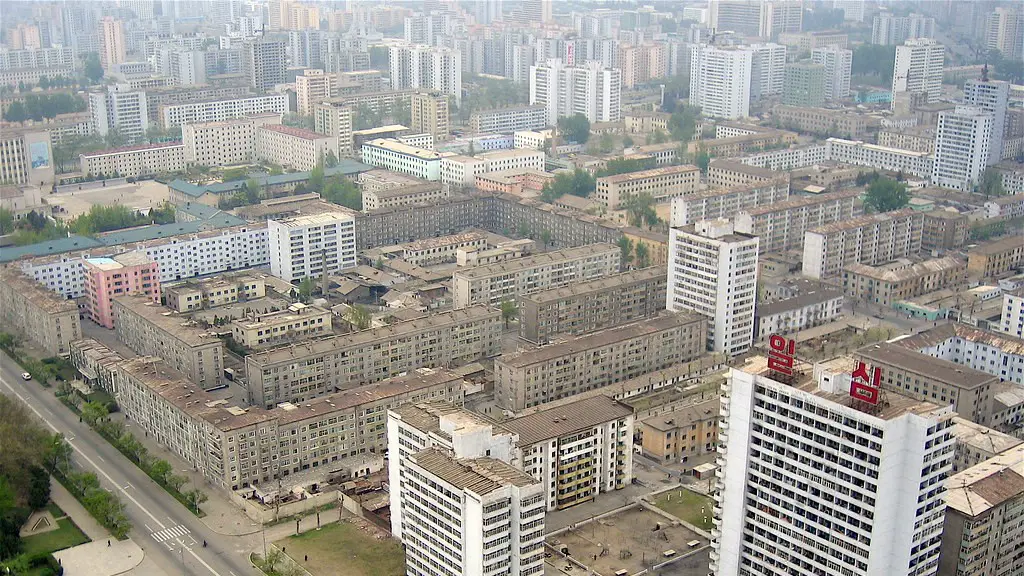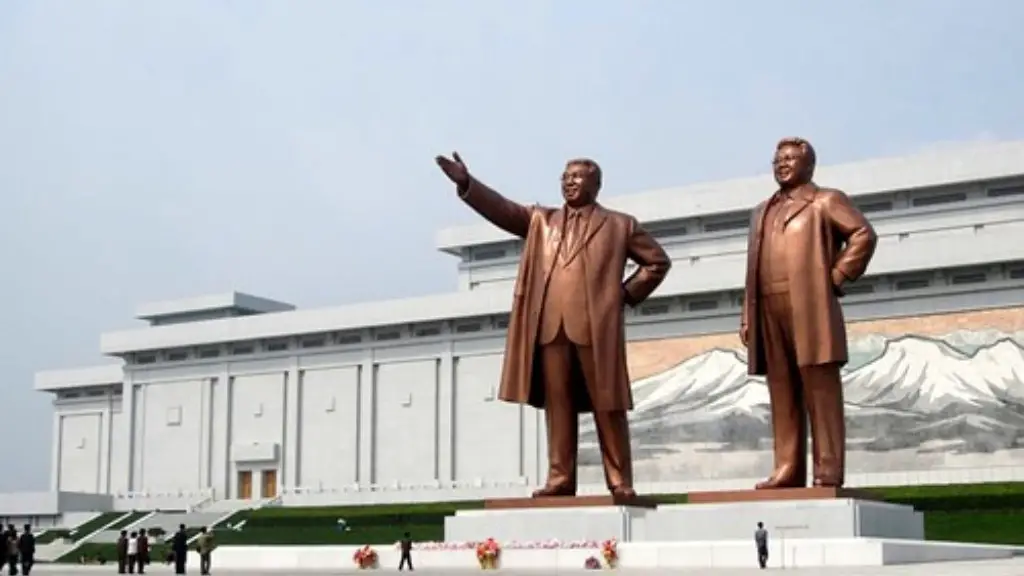Is North Korea Capitalist? This is a country that is notoriously difficult to understand, and its economic system is no different. Here, we try to make some sense of it. North Korea is a “command economy,” where the state centrally plans and controls the means of production. That said, there are elements of capitalism, and marketization has been on the rise in recent years.
There is no definitive answer to this question as it is difficult to accurately assess the economic system of North Korea. However, many experts believe that North Korea does not have a pure capitalist system, but instead has a mix of socialist and capitalist elements.
Is North Korea a communist or capitalist country?
The end of economic aid from the Soviet Union after its dissolution in 1991 was a blow to North Korea. The country had to rely on its own resources to sustain its economy, which was already in a precarious state. The impractical ideological application of Stalinist policies in North Korea over years of economic slowdown in the 1980s and receding during the 1990s only made the situation worse. North Korea continues to nominally uphold Communism, but has replaced it with a more pragmatic approach that is more concerned with practicality than ideology.
A command economy is one in which the government centrally planned and controls the production and distribution of goods. This type of economy is often found in communist or socialist countries, such as North Korea. In a command economy, the government makes all economic decisions, such as what to produce, how to produce it, and how to distribute it. This type of economy can be efficient in the short-term, but it often leads to inefficiencies and stagnation in the long-term.
Is Korea a capitalist society
Korea’s open market capitalist economy has been a success story. The country has achieved rapid economic growth and improved living standards while maintaining a commitment to free trade and investment. Korea is now negotiating with other countries to sign more FTAs, and is also encouraging domestic businesses to invest in foreign countries. This commitment to open markets and global trade has helped Korea become one of the world’s leading economies.
North Korea is a state that is controlled by a single party. This party is the Workers’ Party of Korea. The state does have elections, but they are far from free and fair. Independent observers have described them as sham elections. This is because the North Korean government controls the media and uses it to promote a cult of personality around the Kim family.
Is China a capitalist country?
The CCP maintains that despite the co-existence of private capitalists and entrepreneurs with public and collective enterprise, China is not a capitalist country because the party retains control over the direction of the country, maintaining its course of socialist development.
Marxist–Leninist states, also known as communist states, are states that are governed by a single party that follows the ideology of Marxism–Leninism. These states are typically characterized by a highly centralized government, as well as state ownership of the means of production. Many of the world’s communist states were founded in the wake of World War II, when the Soviet Union and its allies helped to overthrow the Nazi regime in Europe and Asia.
Does North Korea pay taxes?
Despite officially not having any domestic taxes, the North Korean government still manages to collect revenue from its citizens through hidden taxation in the form of various sales taxes. This comes as a surprise to many, as North Korea is often thought of as a country with very few resources. However, the hidden taxation allows the government to maintain a certain level of control and stability within the country.
The North Korean constitution theoretically guarantees the freedoms of speech and assembly, but in practice, other clauses take precedence. This means that citizens are required to follow a socialist way of life, and any speech or assembly that goes against the government or socialist ideals is not allowed. This often results in people being censored or punished for speaking their minds or gathering together in protest.
What type of economy is Russia
A market-based economy is one where the production and distribution of goods and services is determined by the interactions between buyers and sellers in the marketplace. In a market-based economy, the government does not intervenes to fix prices or determine what gets produced. Russia has a market-based economy with a high level of state involvement. Many government officials are quite wealthy, and the Russian currency is the ruble.
As of 2023, the most economically free countries in the world are Singapore, New Zealand, Australia, and Switzerland. These countries have high scores on the Fraser Economic Freedom Index, which measures a country’s level of economic freedom. Economic freedom is important for a prosperous and free society. It allows individuals to pursue their own economic goals without government interference.
What type of society is North Korea?
The Democratic People’s Republic of Korea (DPRK or North Korea) is an authoritarian state led by the Kim family for 70 years. Despite its isolation from the rest of the world, it has developed a unique and repressive society and government. North Korea is poor and its people are among the least free in the world.
North Korea’s aim to militarily conquering South Korea and unifying Korea under the communist North Korean regime caused President Harry S. Truman to be concerned that the Soviet Union and Communist China might have encouraged the invasion. However, it is unknown whether or not they did indeed encourage North Korea’s actions.
While no modern-day countries are considered to have a “pure” socialist system, Cuba, China, and North Korea have strong elements of socialist market economies. These countries have centrally planned economies, which means that the government rather than the market determines what goods and services are produced. However, these economies also allow for some private ownership and market activity.
Since the fall of the Soviet Union in 1989, the Russian economy has been in a state of flux, alternating between periods of growth and decline. The transition from a socialist command economy to a capitalist market system has been a bumpy one, and the country’s institutions have struggled to keep up with the rapid changes. As a result, the Russian economy is often volatile, and its performance can be difficult to predict.
There are a few key differences between communism and socialism. The main difference is that under communism, most property and economic resources are owned and controlled by the state (rather than individual citizens); under socialism, all citizens share equally in economic resources as allocated by a democratically-elected government. Communism is typically associated with a one-party dictatorship, while socialism is associated with a democratically-elected government. Communism is also characterized by a lack of freedom and democracy, while socialism typically allows for more freedom and democracy.
Ideology is a system of ideas, and Marxism is a system of ideas. So, when Marxism is assimilated by state capitalist movements, it becomes ideology.
Now, this doesn’t mean that Marxism is necessarily bad. It can still be a useful tool for understanding the world and acting upon it. But it is important to be aware that, when it becomes ideology, it can be used to justify all sorts of things that have nothing to do with Marx’s original vision.
Warp Up
There is no one-size-fits-all answer to this question, as it depends on how you define “capitalism.” North Korea has elements of a planned economy, with the state owning and controlling key industries, but it also has a thriving private sector. So it is possible to argue that North Korea is a mixed economy with elements of both capitalism and socialism.
No, North Korea is not a capitalist country. The government owns all the means of production and there is no private ownership of property or businesses. Prices are set by the government and there is no competition.
